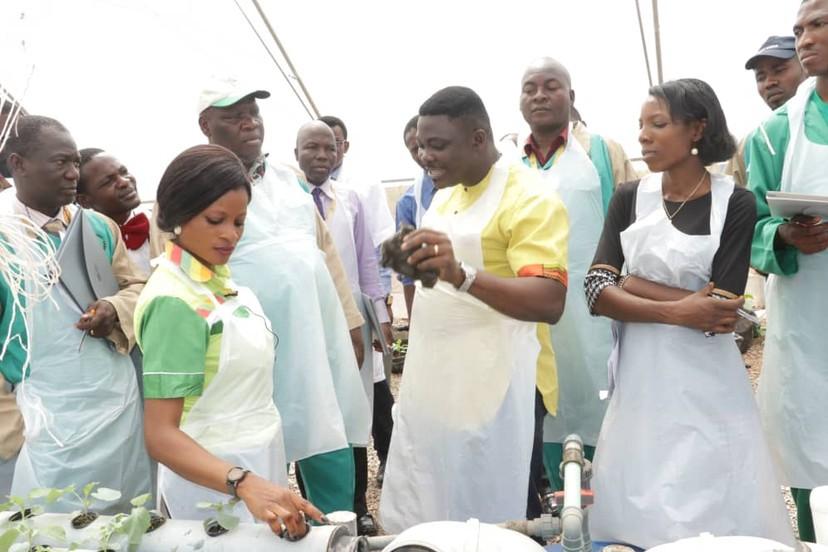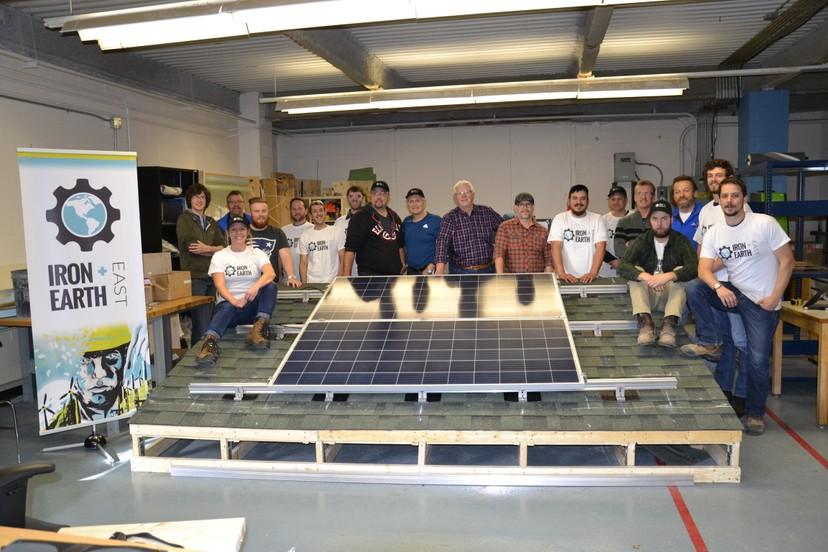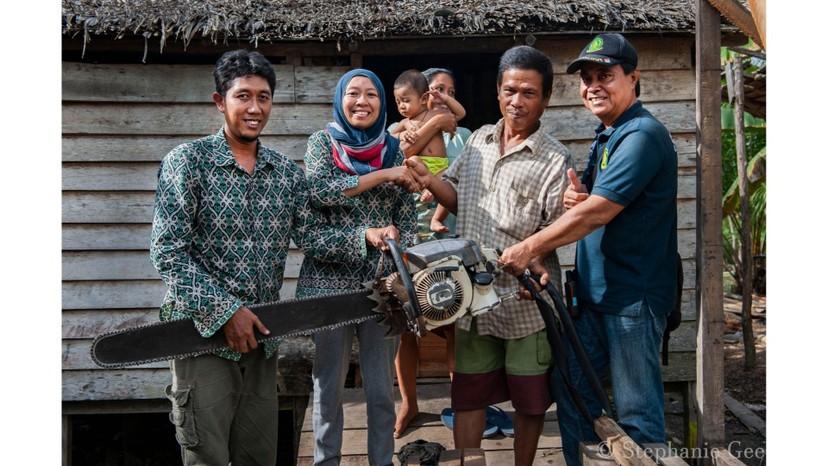
The key to transforming our economy lies in our communities.
Ashoka and HSBC scoured the communities worldwide to find Green Skills Innovators — changemakers who are equipping people with “green skills,”: the abilities they’ll need to step into jobs that positively impact the planet. These 12 organizations have found a way to solve interconnected social and environmental problems all around the globe, in every sector of society.
This diverse group of 12 innovators offer critical ideas and insight to shape a global economy that supports a healthy planet and provides dignified work for all. Read on to see how initiatives are connecting the dots between employment, equity and the environment.
Addressing pressing problems
Nigeria currently ranked 98th out of 110 in the 2020 global hunger index. Constant clashes between farmers and herders have claimed thousands of lives and also displaced thousands, explains Adebowale Onafowora. Add to that other factors affecting food production: an increasing population, urbanization, and global warming—creating less arable land and fresh water for irrigation.
An example of multisolving in action, Adebowale’s organization, Bic Farms, is addressing each of these interconnected issues while equipping over 12,000 people with green skills. He explains this creative, ultra-encompassing solution:
“By growing and teaching others how to grow hydroponic fodder feed and Azolla water fern without soil, I’m making ranching of cattle possible, which will in turn gives a better alternative to open grazing. This will end, or reduce, the clashes between herders and farmers, so farmers return to their farms and continue to grow foods.”
Up-skilling and re-skilling employees
As the economy rapidly changes, we need to align our skills with jobs of the green future. Formed during the Alberta oil slump and layoffs, Iron and Earth is a worker-led not-for profit doing just that: supporting fossil fuel industry and indigenous workers to build and implement climate solutions. Lliam Hildebrand tells the story behind the initiative:
“Iron & Earth formed around the lunchroom tables of the Canadian oilsands during an oil price crash which resulted in over 100,000 oilpatch employees losing their jobs between 2015 and 2017. We realized that our trade skills were transferable to the renewable energy industry and recognized the urgency of diversifying into these technologies.”
Since launching in 2016, Iron and Earth has built a base of over 1,000 fossil fuel industry worker members and carried out a range of innovative initiatives. Using first-hand understanding of the challenges workers face, the organization is currently developing the online Climate Career Portal for workers in the oil and gas sector looking to transition into green jobs.
New models shifting the status quo
Today more consumers are demanding environmentally and socially-conscious products. Conserve India has not only invented a technique to upcycle plastic waste into a high-value leather alternative used in products like bags and coats, but the organization also trains people in green skills. By joining Conserve India, people employed as wastepickers can increase their incomes with Fair Wages and set up their own micro-enterprises with microfactories to process plastic waste to consumer-products.”
The initiative is “creating livelihoods of dignity” for an exploited class, explains entrepreneur. Kanika Ahuja. “I want our innovations and solutions to be a part of the growth towards sustainability, while fairly benefiting the entire supply chain.”
Understanding unique community contexts
Protecting and restoring forests could remove 7 billion metric tons of carbon dioxide annually (the equivalent of eliminating 1.5 billion cars). Carbon is a large-scale problem, but it can’t be solved at the global level. Organizations like Health in Harmony, founded by Dr. Kinari Webb, remind us that environmental issues must be rooted in local contexts, and focus on increasing opportunity and wellbeing for the people who live there.
To help with the just transition of former loggers in Indonesia, Madagascar, and Brazil, Health in Harmony is connecting former loggers to training for alternative livelihoods— for example, organic farm techniques like crop rotation. They work with farmers to convert illegal gardens within the park to agroforestry so that the forest canopy can be restored for wildlife while they are able to grow fruit and other non-timber forest products below the canopy.
And their “Chainsaw Buyback program” helps loggers who do not own land by offering an exchange: trade in their chainsaws for seed money, mentoring, and business planning assistance to launch their own entrepreneurial endeavor.
Learning from Green Innovators
These stories are just a start. Take a deeper look at the initiatives led by our Green Skills Innovation Challenge winners, and check out this video to experience how changemakers are making a green future possible — and ensuring that future works for all.
-
Photo courtesy of Health in Harmony, Conserve India, Iron and Earth, Bic Farms.


